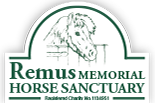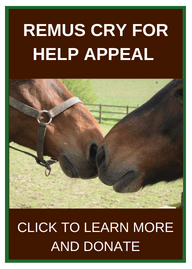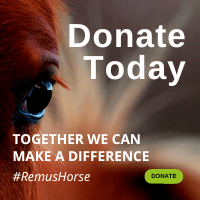
Fundraising Fashion Show and Bargain Sale in aid of Remus Horse Sanctuary
Enjoy a unique afternoon of fashion at Stock Village Hall in Essex on Saturday 11 May in aid of Remus Horse Sanctuary. The fundraising fashion show will feature over 100 individual styles made up of timeless wardrobe essentials from leading high street fashion stores* such as M&S, Wallis, River Island, Mango, H&M, New Look, DKNY, Guess, White Stuff, Next, Dorothy Perkins and Oasis.
After the show guests will have opportunity to browse the rails and try on those items they’ve seen on the catwalk and purchase them at heavily discounted prices – generally at least 50% cheaper than the in-store price. A range of matching shoes and accessories will also be available to complement the clothes. And, in the event you change your mind, all items purchased can be returned within 14 days of the event for exchange or refund.
Catering for all shapes and sizes, the styles will be available in a range of sizes* from 6 – 22 ensuring there is something for everyone. During the show, the compere will describe what each model is wearing, the sizes available, and both the original and sale price.
Guests will have opportunity to win a £50 Colours Gift Voucher in the raffle, and refreshments will be available during the afternoon including tea, coffee, soft drinks, homemade cake and savoury snacks.
Doors open at 1pm for the Fashion Show to commence at 1.30pm. The fashion show itself will last approximately an hour and a half, followed by plenty of time to try on and purchase the items of choice.
Tickets cost just £6 per person, or three tickets can be purchased at the discounted price of £15. Tickets should be purchased in advance either by telephoning the Sanctuary on: 01277 356191 or via the website. Book your tickets online here for the Remus Colours Fashion Show and Pop-Up Shop.
The fundraising fashion show is being organised by ‘Colours’ a leading provider of professional fundraising events.
For further information, please contact Dee Shadforth at the Sanctuary via email: funding@remussanctuary.org.
*Subject to availability.
Enjoy the Ride!
Do you get nervous or uncomfortable riding in front of others at competitions, or even in the yard? Don’t let it spoil your fun. Instead, take some time to tackle the issues and you’ll be back to having fun, whoever’s watching!
Perhaps you worry about what others think when you’re riding, or that they’re judging you, looking for you to make a mistake or show poor performance? The reality is that they are probably not even paying you much attention and are much more focused on their own animal and riding ability.
Comparison is the thief of joy – so the saying goes – and comparing yourself to others is not healthy. For example, if you see someone at the yard who seems to be a more skillful rider than you – always remember that you are only seeing a small part of their riding life. You should remember that they may have more experience than you – it doesn’t mean you won’t reach the same level. You just need commitment and determination and a positive mindset.
Remember, at the end of the day, spending time with your horse should be fun!
For some excellent tips on fighting anxiety around horse riding, head to www.horseandrideruk.com/expert-advice/articles/sit-back-and-relax.
Look out for details of our upcoming Fashion Show! Can’t wait? Take a look at our Colours Fashion Show and Pop-Up Shop and book your tickets today.
Horse Dehydration in Winter
Looking after horses takes so much care – something the team at Remus Horse Sanctuary is well aware of! And some things that we may think of as seasonal issues aren’t actually season-specific at all.
That’s the case with dehydration – yes of course we all know to keep an eye on the animals we care for when it’s hot and sunny, but did you know dehydration can be a risk during the winter months as well?
Being in the stable more, not liking cold water or being unable to access water that has frozen can all lead to dehydration at this time of year. And that in turn can have severe consequences – a common result is impaction colic – or even death.
It’s easily avoided though. Ensure there’s always clean, fresh water available and check that troughs are not frozen. Remember that if most food is hay rather than grass, your horse will need more water than normal, as they are not absorbing any from their food intake.
You can also try adding water to feed, offer lukewarm rather than cold water and even flavour water to make it appealing – apple juice, molasses or mint are popular.
For more ideas check out this excellent Horse and Hound feature at www.yourhorse.co.uk/horse-care/vet-advice/whydehydration.
If you’ve not already done so, please consider contributing to our Winter Hay Appeal.
Make a Will Month
It’s March, and for many fundraising calendars that means one thing – Make a Will Month!
Make a Will Month is intended to encourage individuals to make or review their Will, whilst making a donation to the charity, or charities, they support.
However, it’s very expensive to sign up to the scheme and really only appropriate for much larger charities than Remus Horse Sanctuary – and for those with greater funds at their disposal. Furthermore, the recommended donation is £175, which is still a sizeable amount for an individual to find during the ongoing cost-of-living crisis. So at Remus we like to do things differently, and instead choose to promote ‘FreeWills’ which is available all year round and is, quite literally, free of charge.
What is FreeWills?
FreeWills.co.uk is an award-winning online service, where you can make a legally-binding free Will, typically in around fifteen minutes or so. Each Will is checked by legal experts and your Will can be updated quickly and easily for free, forever. It’s a free service for you and a free service for Remus. You do not need a solicitor to make a Will and, all we politely request, is that you include a donation (or legacy) in your Will for Remus Horse Sanctuary.
Visit our webpage to learn more, where we explain how FreeWills works and address the questions you might have such as:
- Is FreeWills really free of charge?
- Is a free Will, that I’ve created myself, actually legal?’
- Don’t I need a solicitor to create a Will?
FreeWills provides is a guided step-by-step process and supplies lots of information along the way, including what key terms mean, such as ‘executors’ and ‘beneficiaries’.
So why is it such a big deal to have a Will anyway? Below we look at why it makes sense to have a Will in place, regardless of age, and explain what can happen if you don’t have a Will before you die.
Why is it Important to Make a Will?
Creating a Will is a fundamental step in estate planning offering you, as individuals, the opportunity to dictate how your assets, including property, finances, personal belongings – and your beloved pets and their welfare – should be managed when you die.
Of course, we all hope that we’ll live a long and healthy life, but sadly bad things happen. It could be a simple accident with catastrophic results or sudden diagnosis of a life-threatening illness. And these things can befall us at any age.
By clearly outlining your wishes in a legally binding document, you gain control over the destiny of your estate, ensuring that it is distributed in accordance with your preferences. A well-drafted Will not only provides peace of mind but also serves to minimise the potential for family disputes and legal complexities after your passing.
It allows you to appoint executors, designate beneficiaries, and make specific bequests, offering a comprehensive strategy to protect your legacy and provide for loved ones in a manner which reflects your intentions.
It’s important to note that a Will does not have to be drafted by a solicitor in order to be legally-binding document.
What Happens if I don’t make a Will?
The absence of a Will or dying ‘intestate,’ which is the legal term, can lead to a myriad of complications. Without clear instructions, the legal process of distributing your estate upon your death becomes subject to the laws of intestacy, which may not align with your wishes. This can result in delays, increased administrative costs, and potential disputes among family members – at an already very difficult time.
Moreover, the rules of intestacy may not adequately address the needs of unmarried partners, stepchildren, friends and potentially leaving them without any inheritance. Or in the instance of your pets, leaving them without provision of care.
Without a Will, the distribution of your assets follows a predefined hierarchy, often overlooking individuals outside the immediate family. Creating a Will is, therefore, essential to avoid the uncertainties and hardships that can arise when one passes away without a clear and legally binding estate plan in the UK.
So, if you have you been putting off making your Will maybe due to time, or cost, we believe that FreeWills offers a viable alternative.
Thank you for supporting Remus Horse Sanctuary by leaving a legacy in your Will.
Remus is a registered charity founded in 1983 and FreeWills is rated 4.9 on Trust Pilot with over 4,300 reviews.
Winter Feed Donation from Dengie Horse Feeds
Dengie Horse Feeds, in collaboration with Essex Animal Feeds, has generously contributed feed to Remus Horse Sanctuary this winter. Our partnership with Dengie has flourished for over the past 15 years, during which time they have been steadfastly supporting us. Their assistance extends beyond material donations, encompassing valuable nutrition advice and thorough assessments of the horses’ diets.
This particular donation has been made at a time to support our Winter Hay Appeal.
The Dengie Hi-Fi Molasses Free and Alfa-Beet are fed to numerous horses, ponies and donkeys here at Remus, many of which have dietary-related issues such as PPID, EMS or poor dentition. The combination of high fibre feeds provides the horses and ponies with a low sugar and starch ration and can be easily eaten by those animals that struggle to chew.
The two greys pictured are Daisy on the left and Tiffany on the right, along with Minstral and the delightful little fella is Monty – he had 5 teeth out recently – they’re all busy tucking in! The Hi-Fi is a great hay replacer as none of them have good teeth (they’re in their late 30’s now) and the Alfa-Beet helps keep their weight at its optimum – and they love it!
“I have worked with the team at Remus for many years, they were actually one of the first places I visited when I joined the Dengie Nutrition team,” says Tracey Hammond, Nutritionist at Dengie. “For me, beyond helping the horses, I have found it very rewarding supplying Sue and her team with the tools to make decisions on what and how much to feed, which means it’s only the really tricky cases they need to consult me on now”.
When Dengie initially partnered with Remus, the Sanctuary homed a predominantly elderly equine population, many of whom faced dental challenges. Addressing the need for an alternative to hay that was suitable for these individuals was crucial for aiding weight gain and maintaining digestive health. Some horses participated in a Dengie-sponsored study conducted by Writtle College, examining the impact of poor dentition on forage consumption. The study revealed that horses with dental issues consumed two-thirds less food than their counterparts with healthy teeth. Introducing a fully soaked fibre source, Dengie Alfa-Beet, resulted in zero feed refusals, underscoring the importance of providing easily chewable fibre for older horses.
Over time, we saw a rise in younger horses prone to laminitis due to Equine Metabolic Syndrome (EMS). To accommodate these changes, we revamped our facilities, incorporating well-designed woodchip areas to manage horses with restricted or no access to grass.
“Our most sincere thanks to everyone at Dengie that arranged for delivery of the feed and to Essex Animal Feed for delivering it free of charge,” said Sue Burton, Founder of Remus Horse Sanctuary. “I can’t tell you how helpful that is especially whilst things are so tight. It really has made a huge difference and is so much appreciated by us all, as is all the help and support that we receive from Dengie”.
Amidst the current cost of living crisis, Remus faces heightened demands. Not only are the charity’s operational costs on the rise, but the requests for assistance with horses have also multiplied. Dengie’s contribution of Hi-Fi Molasses Free and Alfa-Beet, both widely consumed by the majority of the horses, has proven invaluable in easing this burden and we thank them for their ongoing support.
Dengie Horse Feeds is officially the UK’s favourite fibre-based horse feed, having topped the 2023 National Equestrian Survey*. The leading producer of fibre-based horse feeds using forages exclusively grown in the UK, Dengie has been growing alfalfa, one of the few ingredients grown specifically for horse nutrition, for over 50 years and continue to develop innovative and exciting feeds that promote health and performance in the horse. Alfalfa is a sustainable and environmentally friendly crop providing a natural habitat for birds, insects and other wildlife. All the crops are fully traceable from seed to feed; their non-GM status and feed management protocols set the standard in fibre feeding in the UK. Dengie offer non-biased qualified nutritional advice on feeding to horse owners and are proud to be awarded HM The Queen’s Royal Warrant.
*BETA National Equestrian Survey 2023 for fibre feed brands purchased in the last 12 months.
Click here if you would like to contribute to our Winter Hay Appeal.
Benefact First £5,000 Draw of 2024 is Here
The Benefacts Movement for Good animals and wildlife special draw is here and they have 10 awards of £5,000 to give away – and we’d love to be one of them!
The nomination window opens for five days only from Monday 19th to Friday 23rd February 2024. Please mark the dates on your calendar and visit the Benefact website this week to get Remus in the running.
Visit the Benefact website to find out more about the Animal and Welfare Special Draw.
Additionally, we’d love you to nominate Remus for the next Benefact £1,000 draw!
The next £1,000 draw is Monday 18th March, so if you haven’t already done so, please do get involved and nominate Remus Horse Sanctuary today. Don’t forget, it’s one nomination per charity per person and we would be beyond delighted if you could choose Remus.
Once you’ve nominated, use their tools to share and get your network to support us too – it only takes a minute and the more nominations we receive, the greater our chance of winning.
Please note: if you’ve already nominated Remus in the £1,000 awards this year, your nomination will automatically be carried forward to all of the remaining £1,000 draws. Nomination for the £5,000 draw, however, is a separate requirement.
Benefact Group is a diverse family of specialist financial services businesses, driven by a shared ambition to do right by their customers and clients, and united by a common purpose to give all available profits to charity and good causes.
Thank you so much for supporting Remus Horse Sanctuary in the Movement for Good Awards!
How to Spot and Soothe a Stressed Horse
Just like humans, horses get stressed and, just like us, it can be for different reasons – and show itself in numerous ways.
Whether your horse is under acute stress (ie, of the moment, such as being moved in a horse box) or chronic stress (ie, constant or continual, such as inappropriate living conditions ) the clue to spotting it is a change in their behaviour.
Out-of-character actions such as nipping, being hard to catch, fidgeting or failure to concentrate, are all likely to be signs that your horse is showing acute stress. While lethargy, weight loss and irritability are likely to be caused by chronic stress.
We see many signs of stress in the new rescue horses that come to us here at Remus, whether it’s because they have been neglected and have been living in awful conditions, or because they are unfamiliar with their new surroundings when they arrive.
If you are concerned about stress in your horse, the first port of call is to get their health checked, followed by an assessment of their living conditions – they may be reacting to being stabled in the winter for instance.
Other things to consider are their diet, and the amount of exercise they are getting. It’s also important for safety reasons that your horse respects you and your space when handling – if they already try to mess about when being led, trying to handle them when stressed will be twice as hard.
Finally, if you know your horse is going to be in a stressful situation, such as being transported, it is possible to buy calming products. But do get advice from your vet before administering.
For more detailed information on stress, symptoms and strategies for calming horses, head to: www.yourhorse.co.uk/horse-care/horse-behaviour/stressed-horses.
We are currently running an appeal to raise funds for hay this winter. Please visit our JustGiving page to make a donation: Remus Winter Hay Appeal 2024.
Welfare Update
We’ve had many welfare calls so far this winter both from the floods and then the severe cold. We dealt with a particularly bad case of a whole flock of sheep in a field in Boston, Lincolnshire, where the field was so wet and boggy (this was prior to the countywide flooding) that the sheep were black as they only had wet mud to lie on and one ewe was stuck up to her knees in thick mud.
The sheep were all trying to lie as close to the fencing as possible, to keep out of the wet mud. It was pitiful to see so many animals affected. All animals are entitled to somewhere dry to lay down, and food to eat.
In the photo there is a line of electric fence between the sheep in the thick black wet mud and the soft grass which would have given her somewhere dry to lie down and something to eat, but the electric fence prevented it and everything on the field had been eaten as the animals were starving.
Thankfully we were able to get these sheep moved onto better more drained land.
As we have said repeatedly in our Born to Die Campaign no one wants to take responsibility and often authorities don’t know issues are their responsibility. It took us over 4 hours on the phone going round and round in circles to try to get help for these poor sheep, and we knew who to contact! What on earth does a concerned member of the public do?!
There are many ways you can help us through 2024 and beyond:
- Make a regular donation. Can you spare even just £5 a month?
- If you are clearing out your wardrobe, please do consider donating your clothes to the Sanctuary as they have become a very good fundraiser for us, we can also take shoes and handbags.
- If you aren’t close enough to drop them to us you can use the i-collect clothes website and they will collect from you. So long as you click on the Remus logo all funds will come directly to us.
- If you have any unwanted gifts after Christmas or items that might just sit in a drawer unused, we would love to have them to help raise funds for the animals.
- Let your love for animals continue in your memory, with a legacy. Do consider leaving a donation to Remus in your Will, if you are able.
- Do make a donation towards our winter hay appeal and general winter feed, bedding and vet costs.
- If you have any jewellery or even broken jewellery, we can turn that into funds for the animals.
- Organise an event to raise funds for the Sanctuary and/or support our events.
And finally, thanks so much to everyone who purchased tickets for our Christmas Draw last year. Our congratulations to the winners were: John and Brian from Rayleigh, Philip from Billericay, and Mrs Jeffery from Chelmsford. Our sincerest thanks go to Bridgit Tappin for all her hard work and effort in producing these amazing hampers for us at her own cost.
Thank you so much Bridgit, and to all our supporters – your help is so very much appreciated.
Help your Vet Help your Horse
As you’ll know, at Remus Horse Sanctuary we rescue many elderly and sick animals, so our vet is a regular, and very welcome, visitor.
But when your horse is injured or ill, sometimes we are tempted to treat it ourselves – especially if we are worried about the vet’s bills. Of course, most experienced owners have their own tips and tricks for minor issues – but if you think that your animal will need a visit from the vet, here’s three things to avoid:
- Applying anything to a wound – if you know it’s severe enough to call out the vet, avoid applying purple spray or wound powder – it makes it hard for them to properly assess discharge or the colour of the tissue, which can be vital in diagnosis.
- Removing a penetrating object – our first instinct might be to pull it out – but without a qualified examination, and possibly an x-ray – you could do more harm to your animal.
- Not vaccinating your horse – even if your horse never leaves the yard, they could pick up tetanus from a puncture wound – and the survival rate from this common disease is particularly poor in horses. Don’t take the risk and ask your vet for advice.
For more information on this subject head to: www.yourhorse.co.uk/horse-care/vet-advice/5-things-your-equine-vet-wishes-you-wouldnt-do/.
If you would like to support our welfare work and rescue efforts, please make a donation.
Your support is invaluable.
Winter Hay Appeal and Two New Events
Remus Horse Sanctuary has launched an appeal to help raise extra funds for hay this winter.
Unfortunately, the Sanctuary has been facing a shortage of hay due to the extremely wet weather conditions. As a result of the sustained flooding from over the last 3 months, they have had to use much more of their hay supplies than usual to ensure their rescued and elderly residents are kept well fed.
As Remus’ work is 100% funded by donations from the public, the extra spend has put further pressure on their already tight budgets, which have still not recovered: first from the impact of the Coronavirus lockdowns and second by Storm Eunice which caused £40,000 worth of devastation when it blew entire field shelters over fences, crashing and smashing them, and taking roofs off the buildings.
Sue Burton, Founder of Remus Horse Sanctuary, said: “On average, we spend around £6,000 on hay and feed every single month. As you can imagine, we plan our supplies carefully, but each winter we see prices increasing made worse by the weather, which obviously has an impact on us here.”
“We would like to urge anyone who can consider making a donation, to do so now to ensure we can purchase the extra supplies we need to continue to provide the very specialist care for our rescued horses, donkeys and ponies.”
To donate to the Remus’ hay appeal, please visit their JustGiving page or telephone the Sanctuary directly on 01277 356191.
The Sanctuary is hosting two new events this year:
- New Hall Wine Estate’s Tour & Tasting – as featured on James Martin’s Saturday morning show – Saturday 16 March 2024
- Colours Fashion Show & Pop-Up Shop – Saturday 11 May 2024










